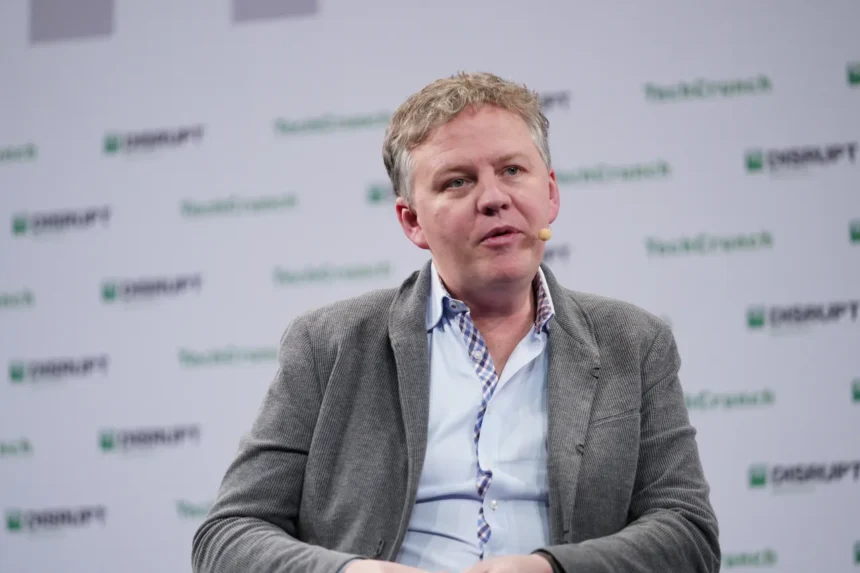Cloudflare is stepping up its efforts to empower website owners in the age of AI, announcing plans to launch a revolutionary marketplace next year where publishers can sell access to their site’s content to AI model providers. This bold move marks the latest step in Cloudflare CEO Matthew Prince’s vision to grant website owners more control over AI-driven content scraping.
“If you don’t compensate creators one way or another, then they stop creating. That’s the issue we must solve,” Prince explained.
AI Scraping and the Struggle for Publisher Survival
The rise of generative AI models like OpenAI’s ChatGPT has revolutionized information access, but it has also sparked concerns, especially for smaller websites and publishers. AI bots are constantly scraping thousands of websites to fuel their language models, and while some larger entities have struck deals to license their content, most websites receive no compensation for this process.
For many site owners, this content-scraping activity could significantly damage their business models, as AI-driven tools bypass their websites, reducing the traffic they rely on for revenue. Worse, the sheer volume of scraping can overwhelm servers, driving up cloud costs and affecting performance.
Earlier this summer, for instance, AI-powered search startup Perplexity was accused of scraping content from websites that had explicitly opted out of being crawled through the Robots Exclusion Protocol. This incident heightened awareness of the issue and triggered calls for better tools to manage AI bots.
The Power of AI Audit: Monitoring and Managing AI Scraping
To address these concerns, Cloudflare introduced AI Audit—a set of free observability tools designed to give website owners visibility and control over how their content is being used by AI models. With AI Audit, website owners can see why, when, and how often AI bots visit their site, offering detailed insights into scrapers from major AI players like OpenAI, Meta, and Amazon.
Cloudflare’s intuitive dashboard enables website owners to selectively block or allow AI bots based on their preferences. Want to block Perplexity’s scrapers but allow OpenAI? AI Audit makes it possible with just a few clicks. This selective approach gives website owners the power to make nuanced decisions, balancing the need for exposure with concerns over excessive or unwanted scraping.
“This tool arose from frustration we were hearing, where people felt like their content was being stolen,” said Prince.
The introduction of AI Audit could change the game for website owners dealing with the often overwhelming volume of scraping traffic. Several business owners previously expressed concerns that AI bots were scraping their websites to the point that it felt like a Distributed Denial of Service (DDoS) attack, slowing down their servers and skyrocketing operational costs.
Monetizing AI Scraping: A Marketplace for the Future
The most ambitious part of Cloudflare’s plan, however, is the forthcoming marketplace, set to launch sometime in the next year. This platform will enable website owners, especially smaller publishers, to monetize AI scraping in the same way major companies like Reddit, Quora, and large publishing houses have done through licensing deals.
“Let’s give everyone the ability to do what only the big publishers have done before,” Prince said. “What if we let you set a price for accessing and taking your content to feed into these AI systems?”
While details about the marketplace are still emerging, the concept is groundbreaking. Websites could charge AI model providers based on the frequency or volume of scraping, potentially setting prices for access to their data. Alternatively, they might ask AI companies for credits or recognition in exchange for being scraped.
This model has the potential to level the playing field, allowing small and mid-sized publishers to profit from AI scraping, just as larger organizations do today. Cloudflare’s vision is to provide transparency and fairness to a system where, currently, AI companies extract vast amounts of content without compensation.
The AI Content Compensation Debate
The broader debate over AI scraping centers on sustainability. AI companies like OpenAI, Meta, and others have built powerful tools that rely on enormous volumes of online content, much of it scraped from websites without any form of compensation. While some larger publishers have secured licensing agreements, many smaller sites remain in the dark, with no control or insight into how their content is being used.
Even those who have deals in place often lack clear visibility into how often AI bots are crawling their websites. According to Prince, many publishers rely on what AI companies tell them, without having the means to verify those claims. Cloudflare’s AI Audit dashboard could provide these publishers with the transparency they need to determine whether they are getting fair deals.
“Even the big publishers that have licensing deals with OpenAI have limited insight into how much ChatGPT is scraping their websites,” Prince noted.
As the AI industry continues to expand, the issue of content compensation has become more pressing. Some AI companies may resist paying for content they currently access for free, but Prince argues that the current landscape is not sustainable in the long term.
A Future of Fair AI Access?
Cloudflare’s initiative represents a bold new frontier for content creators and website owners. As AI models grow more powerful, the balance between open information access and fair compensation will be key to maintaining a healthy online ecosystem. By giving websites the tools to monitor, control, and potentially profit from AI scraping, Cloudflare is taking a significant step toward resolving one of the most critical challenges in the AI era.
The upcoming marketplace could provide a lifeline to smaller publishers struggling to navigate the changing landscape. Whether websites will be able to set meaningful prices for their content or receive tangible benefits remains to be seen. What is certain, though, is that the conversation around AI scraping and content compensation has only just begun.
With Cloudflare at the helm, the future of AI-driven content access may soon look very different—and potentially, far more equitable.










